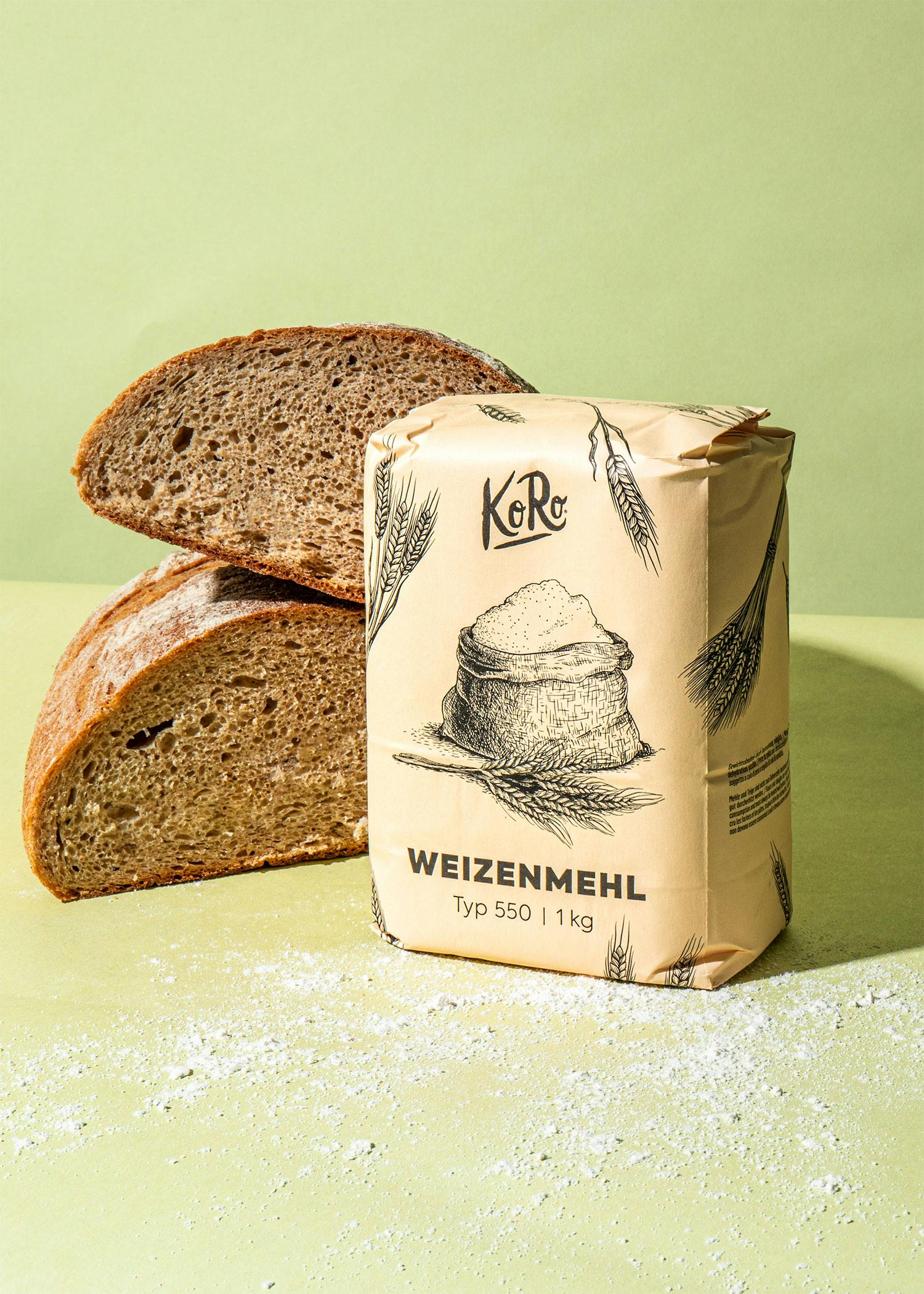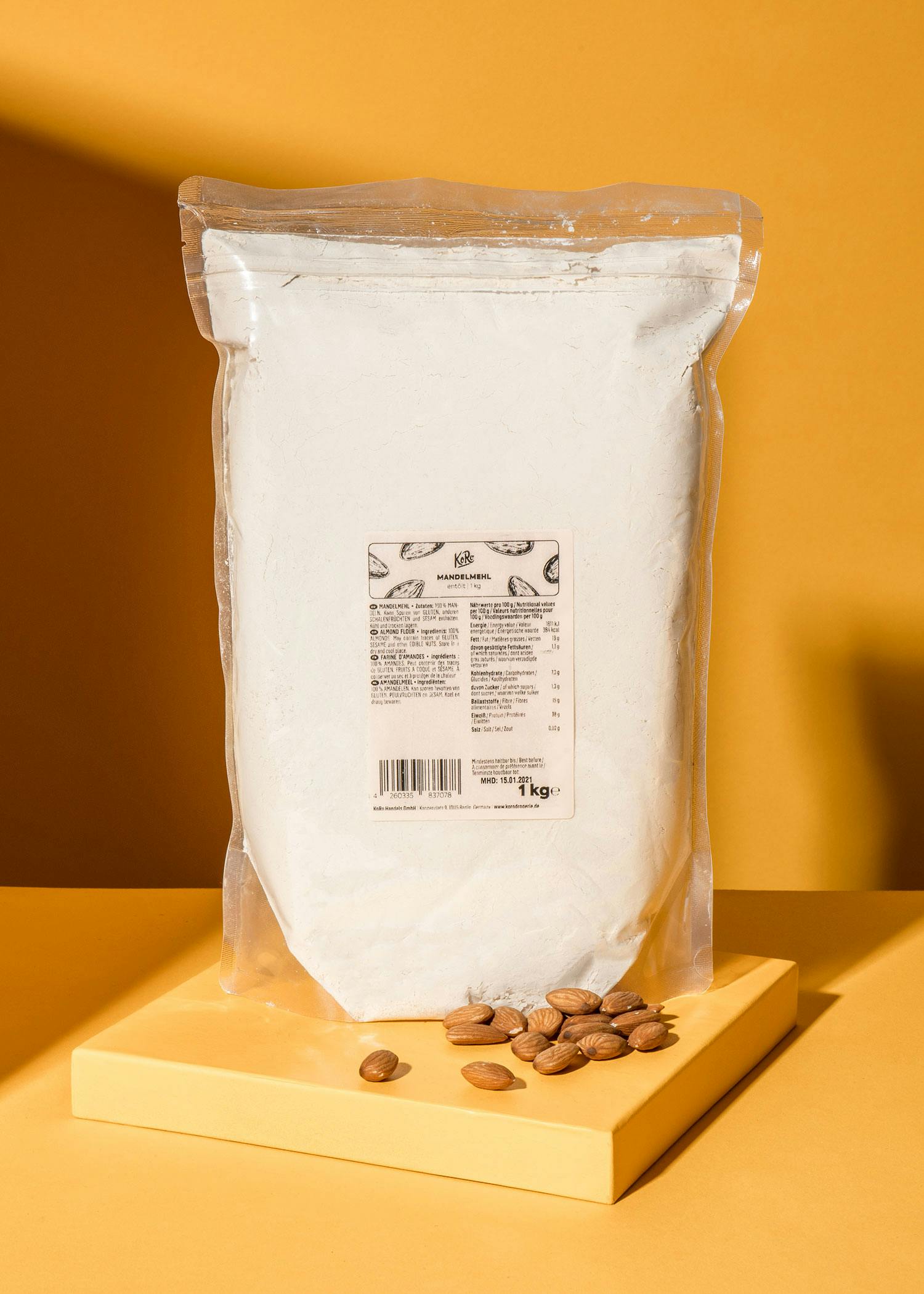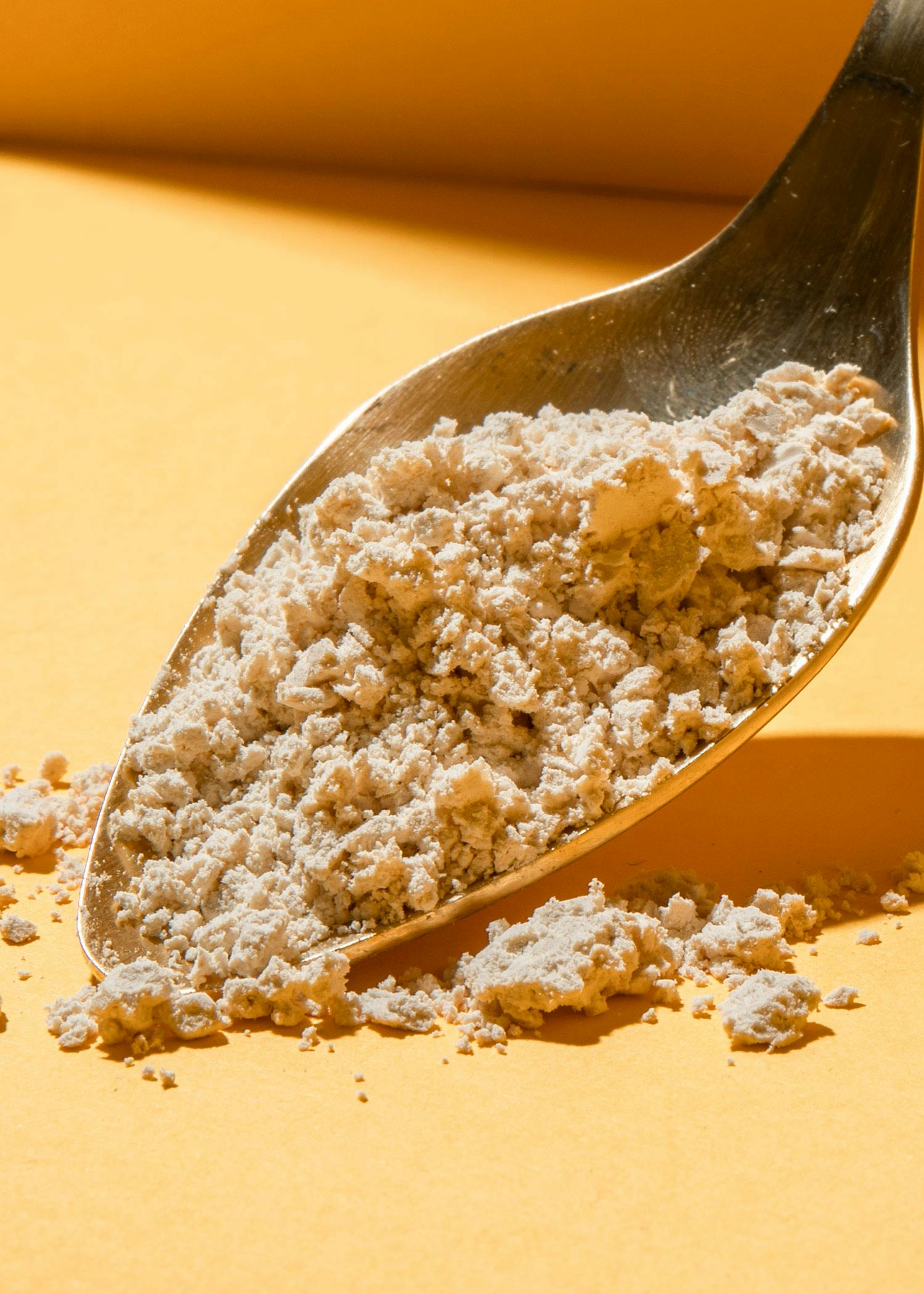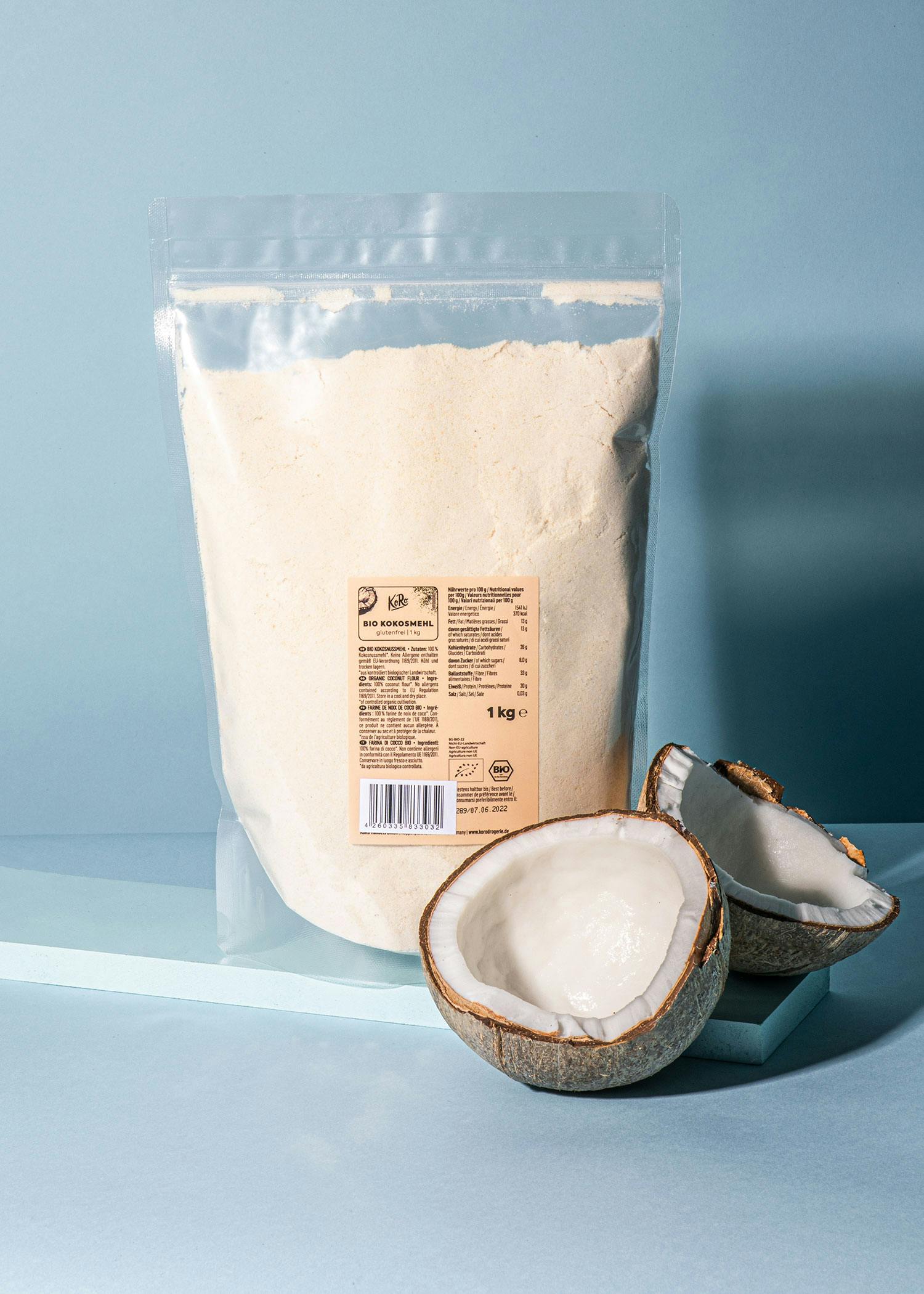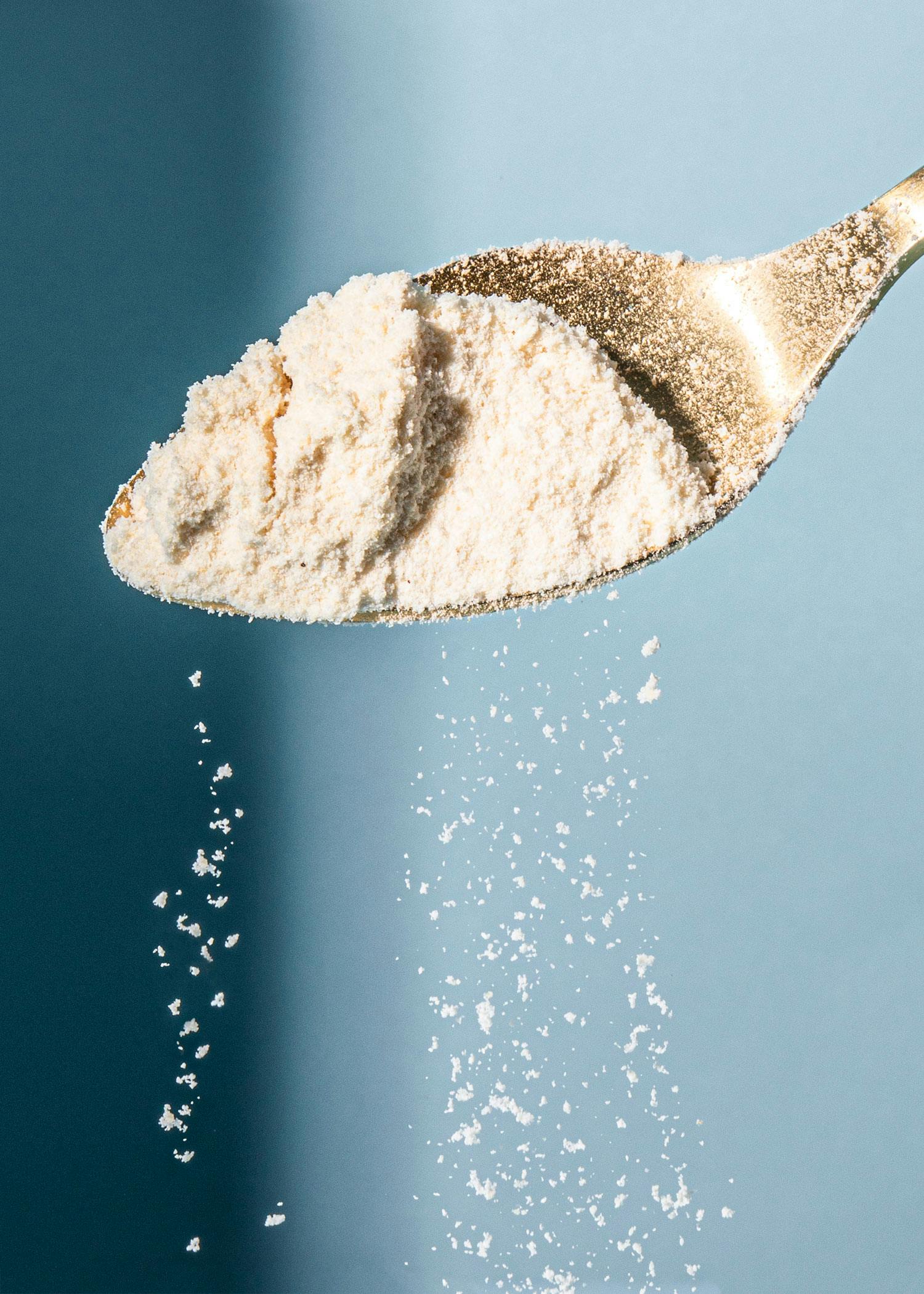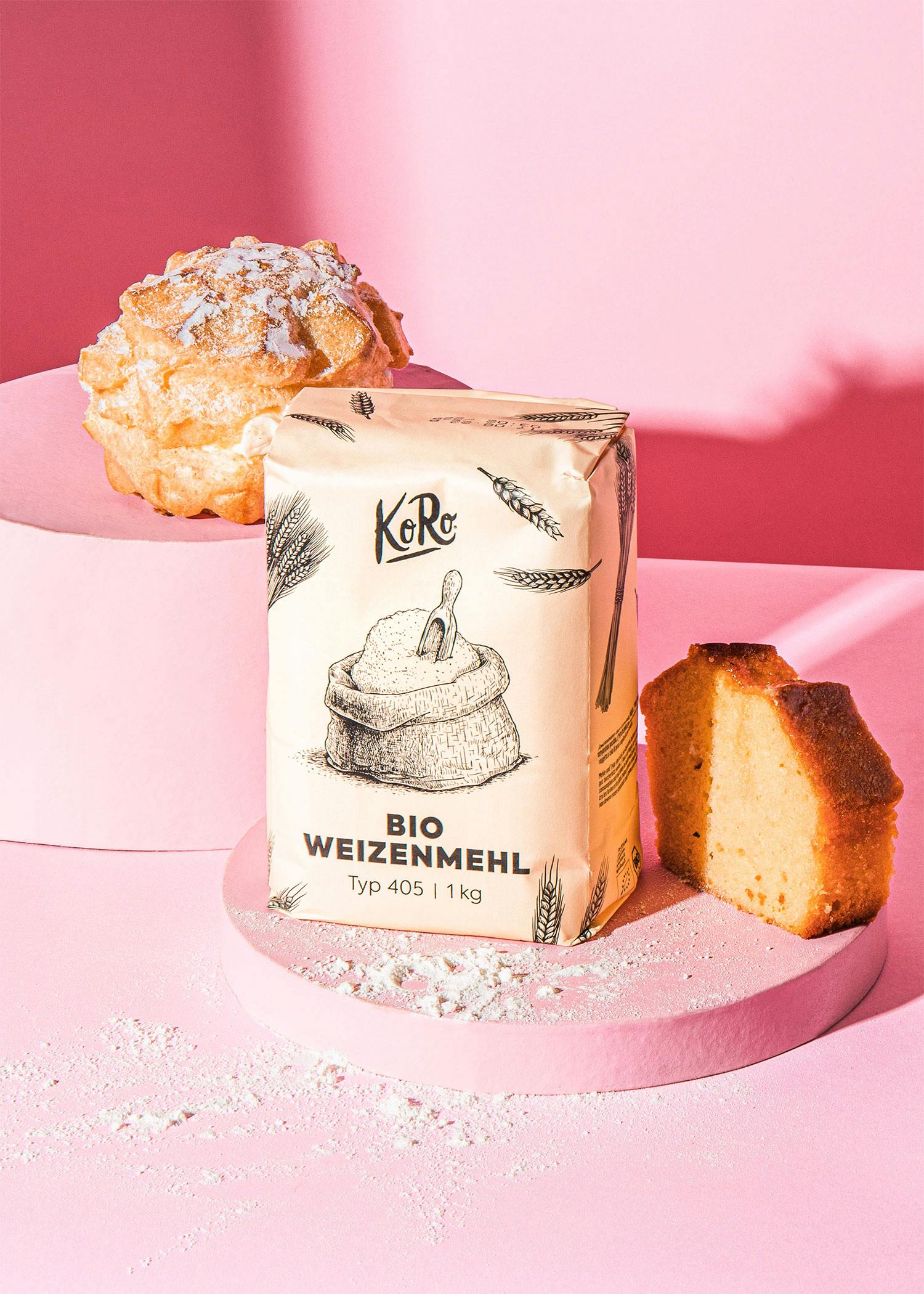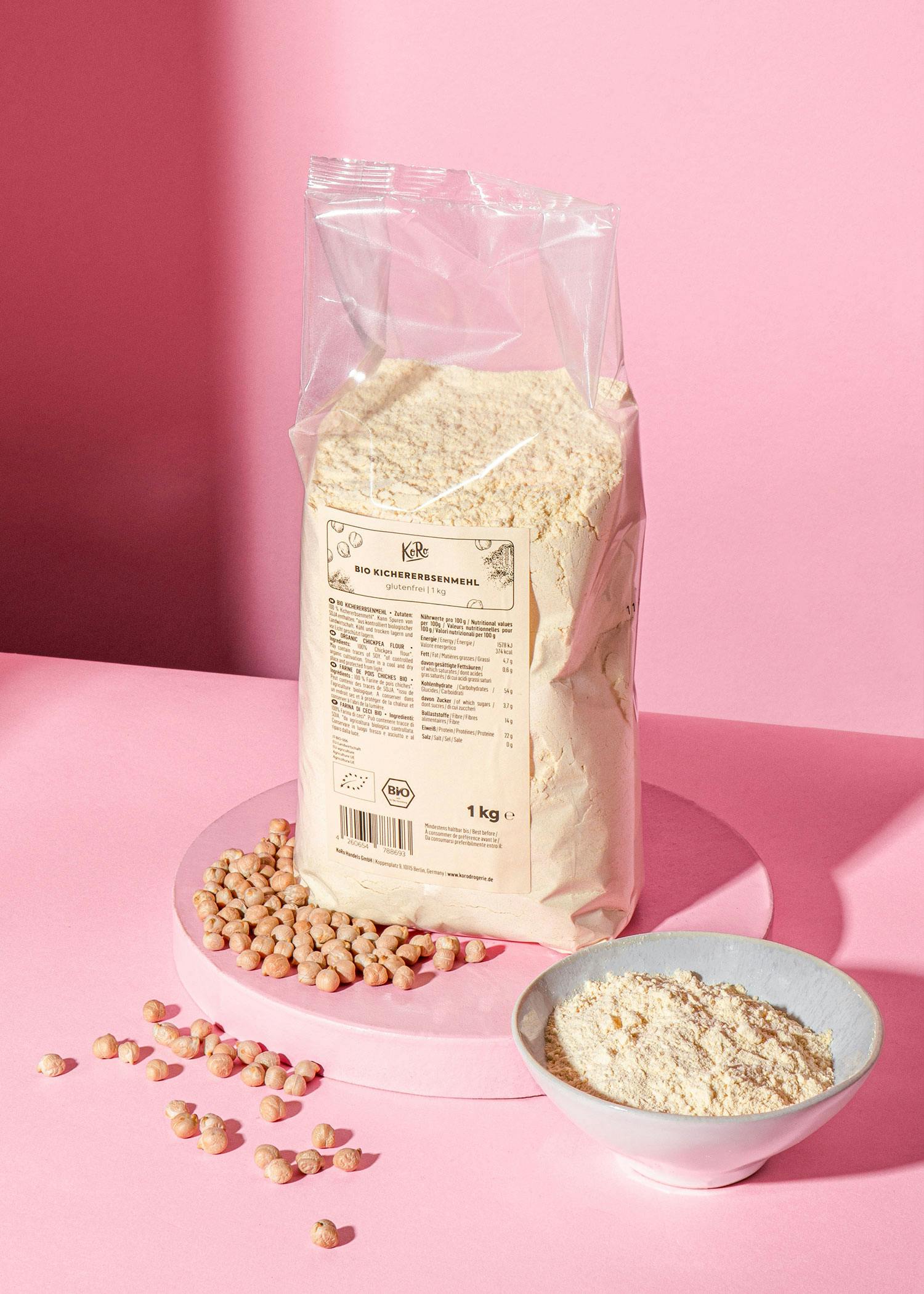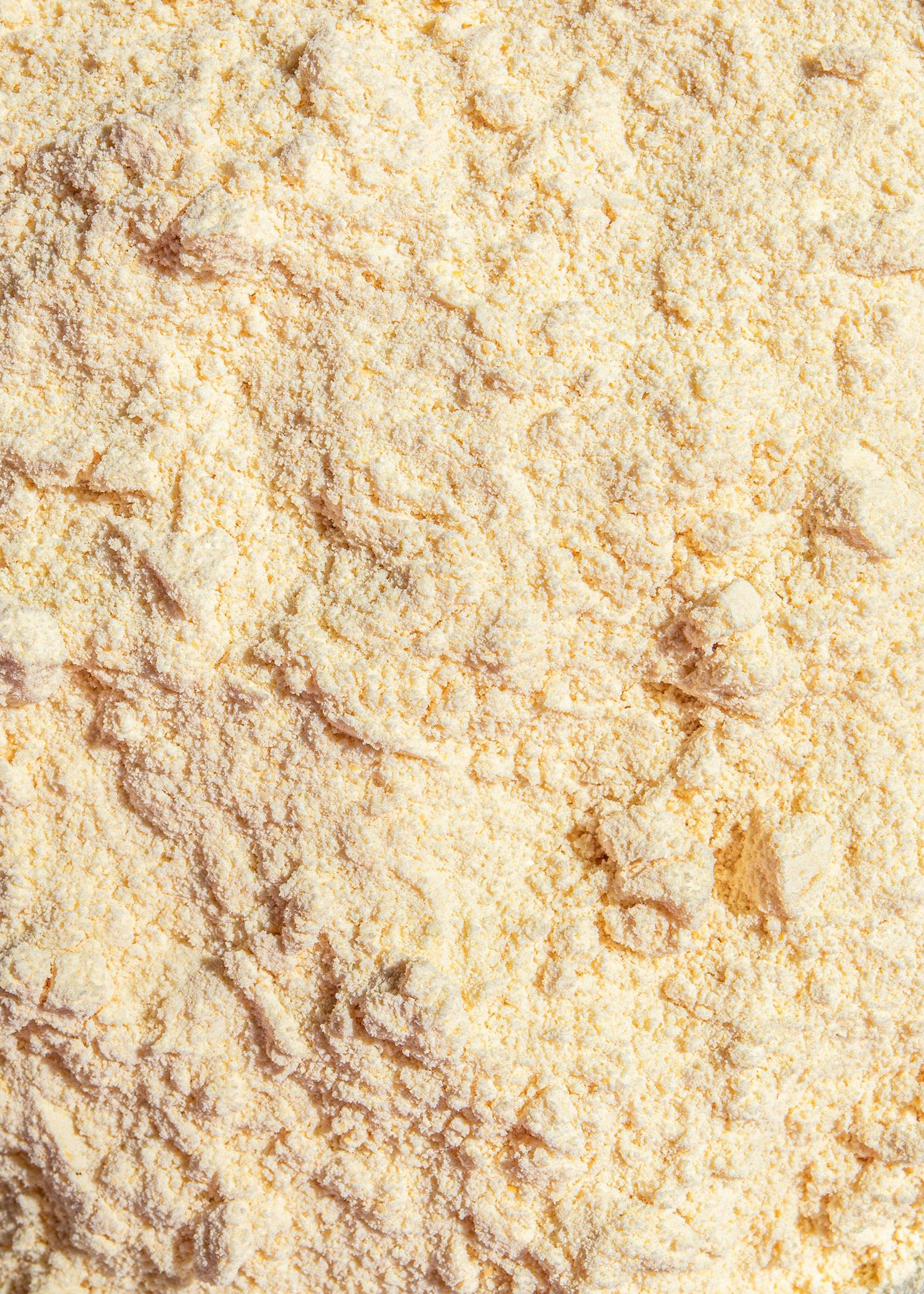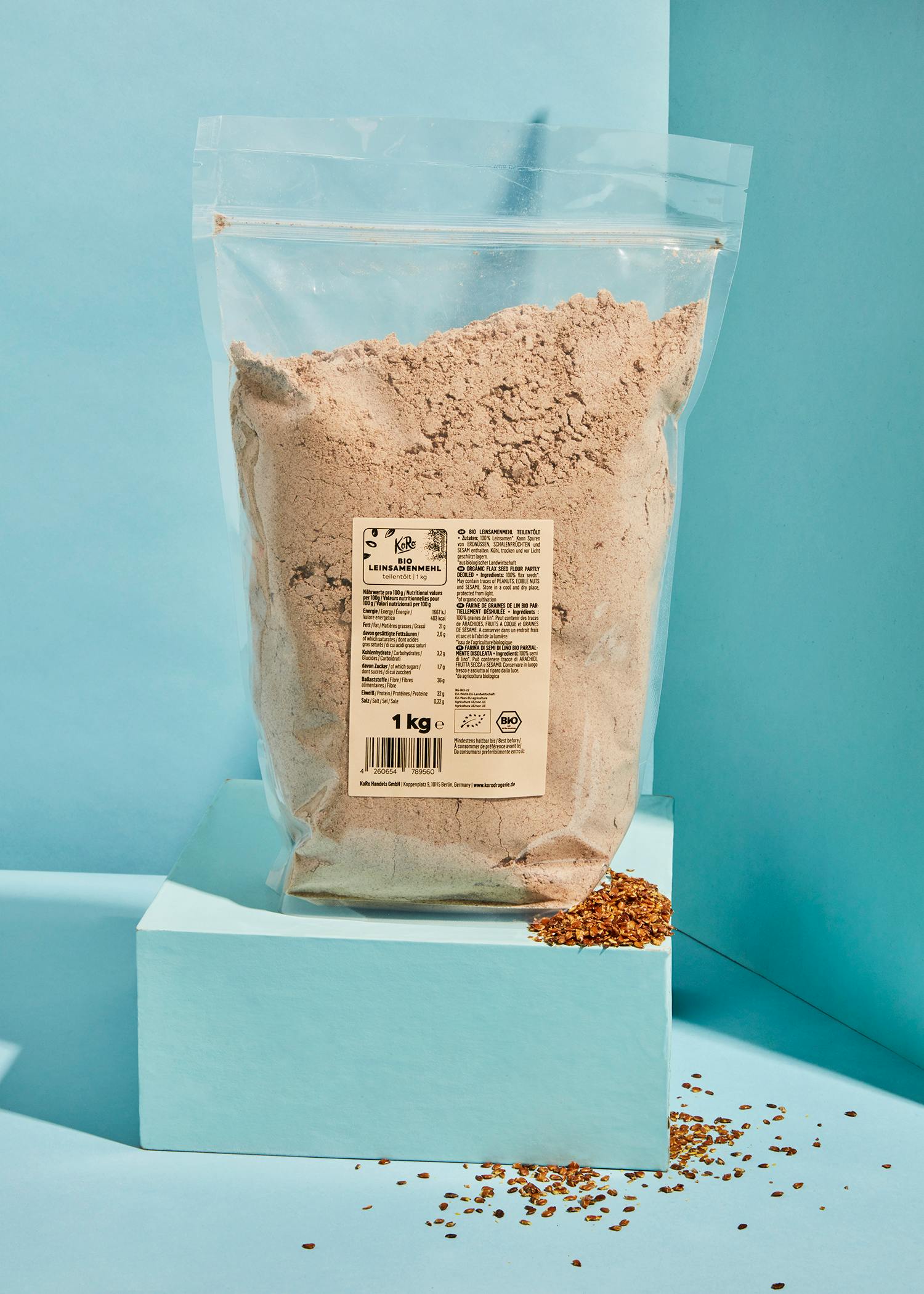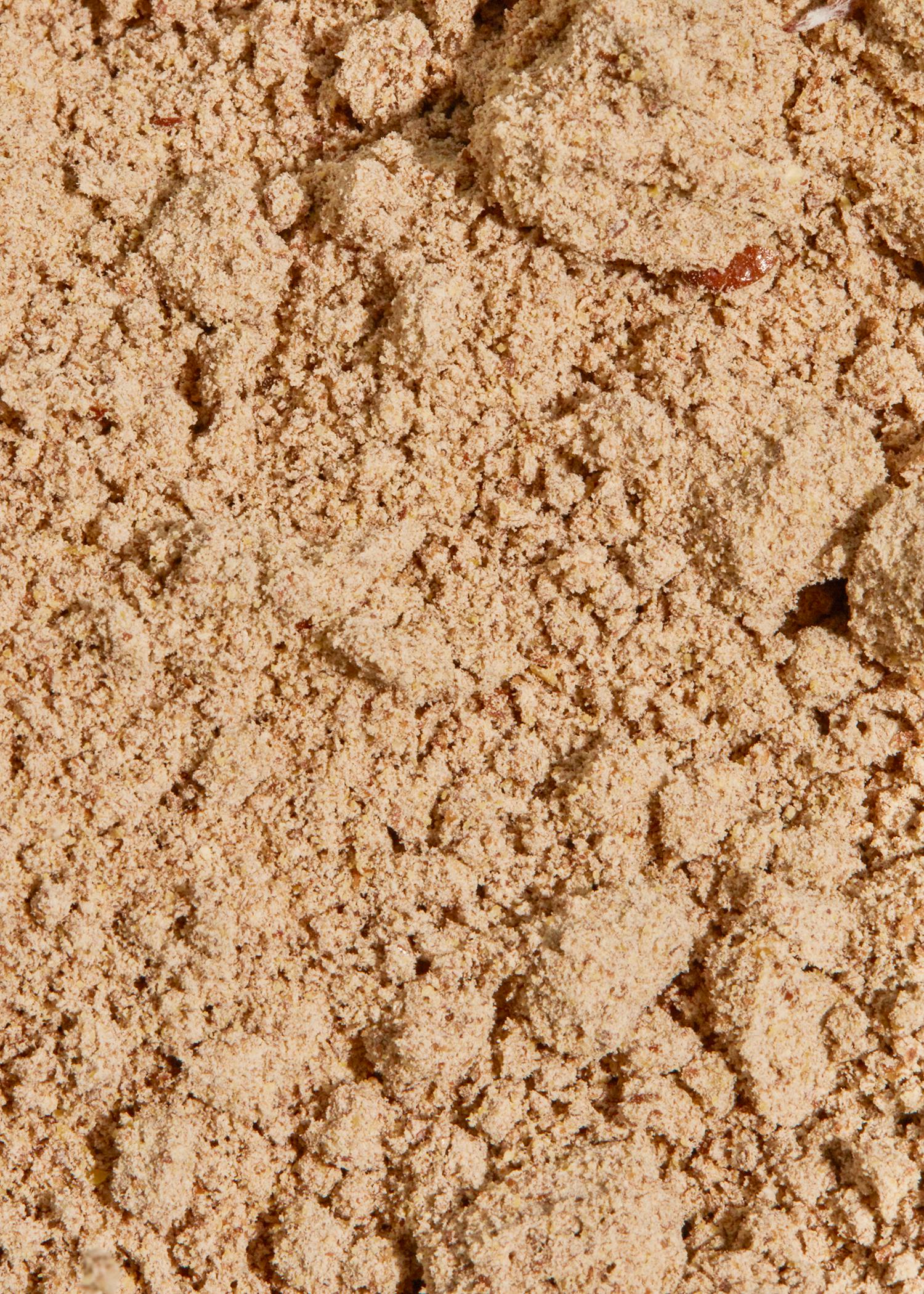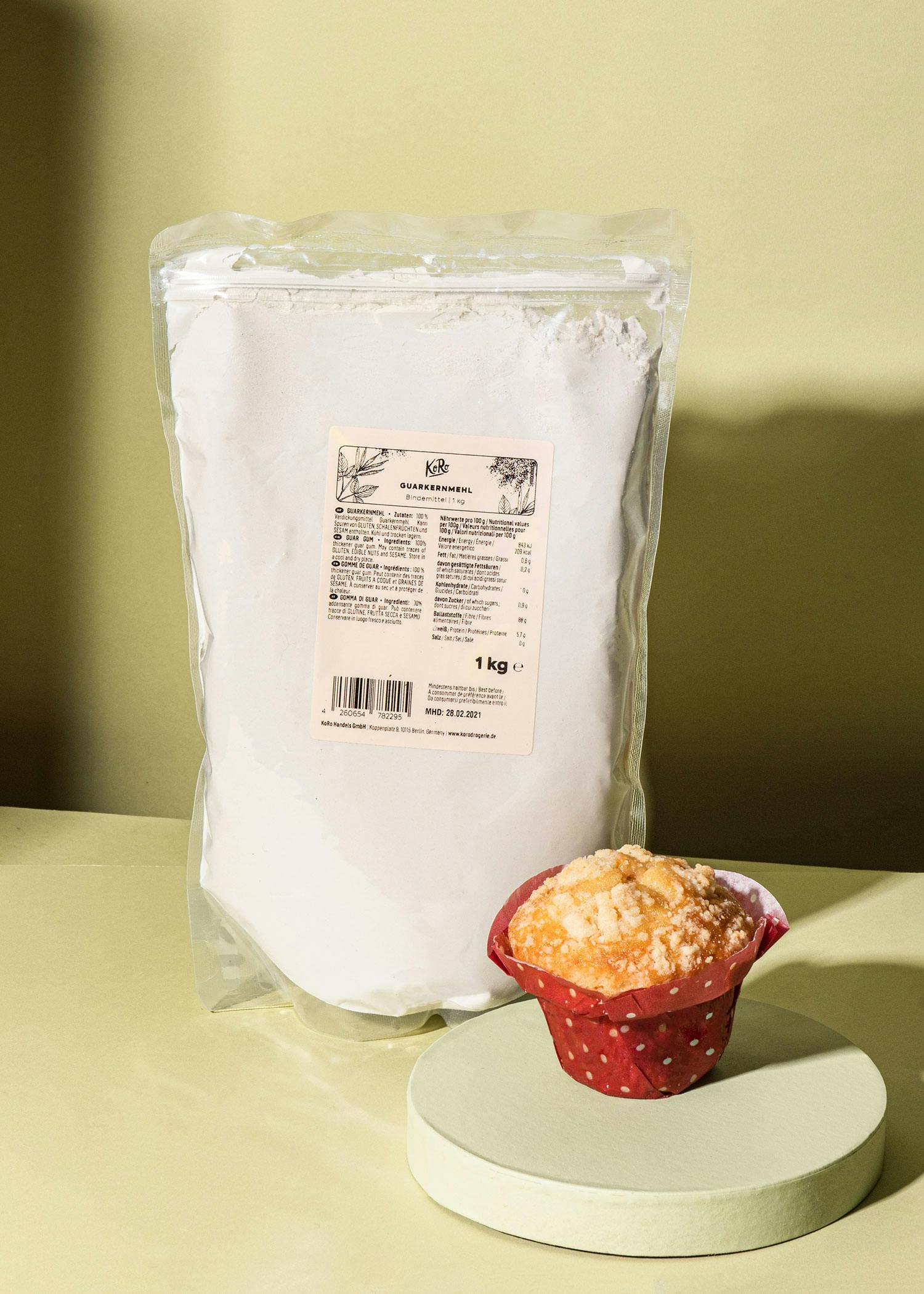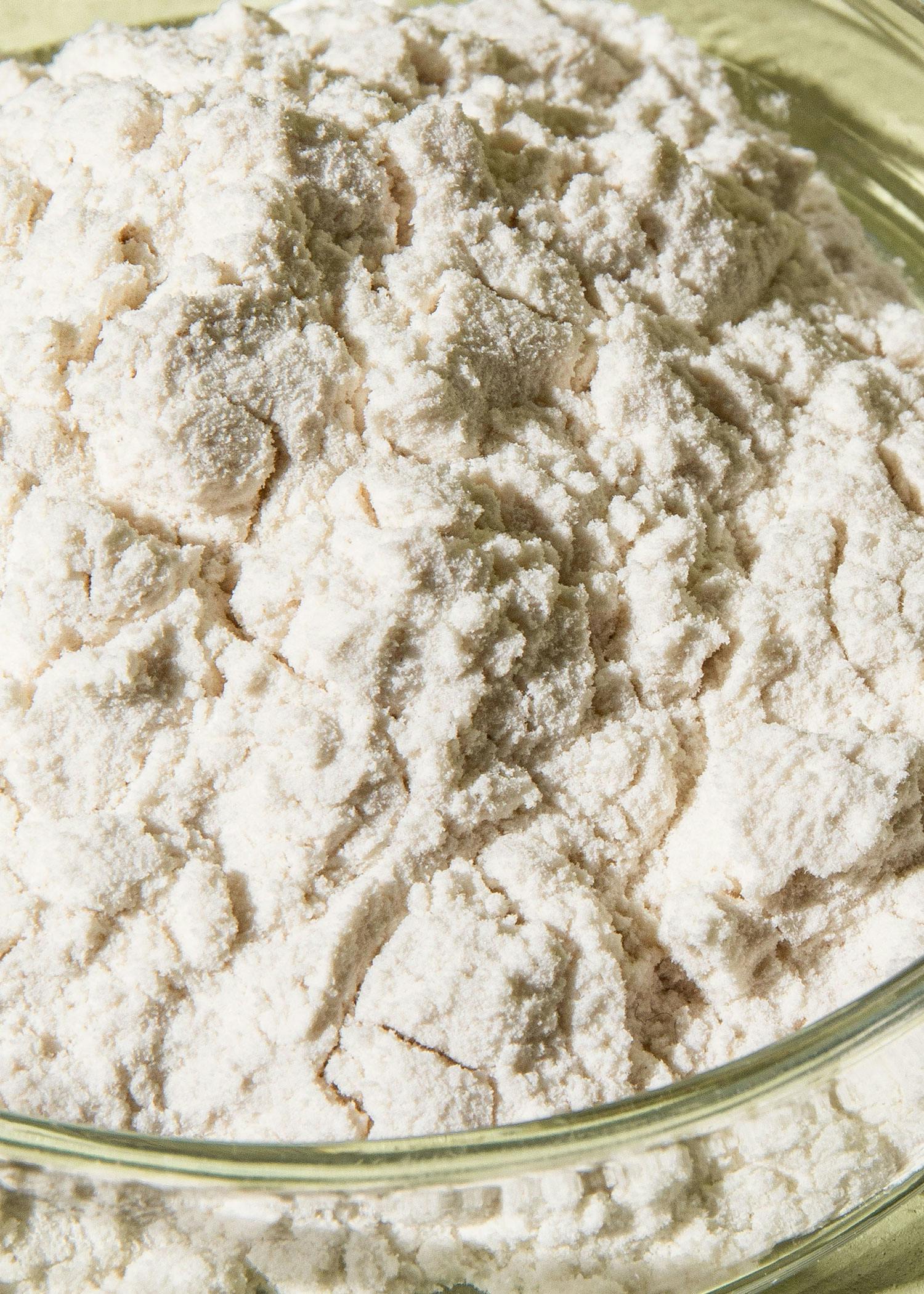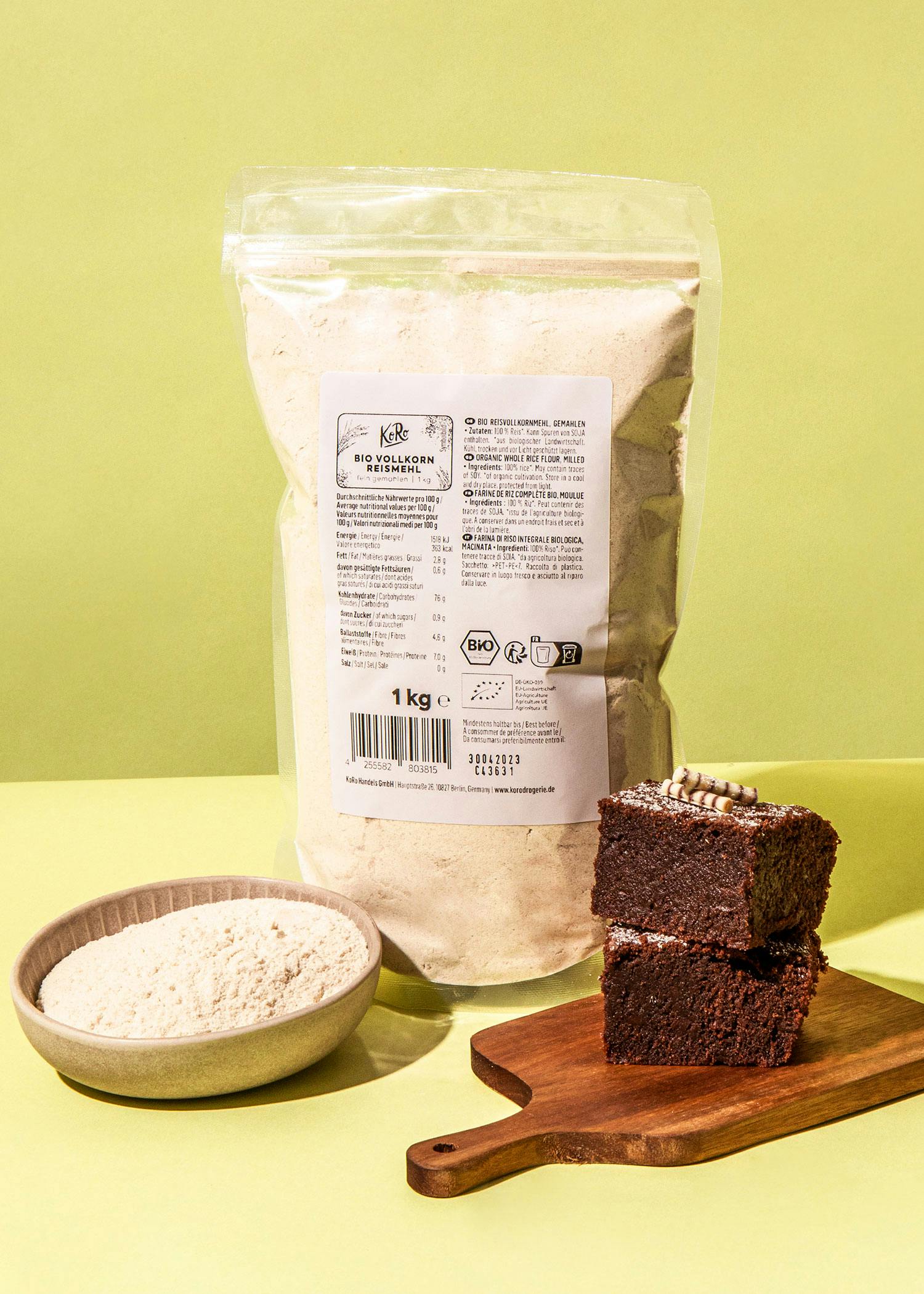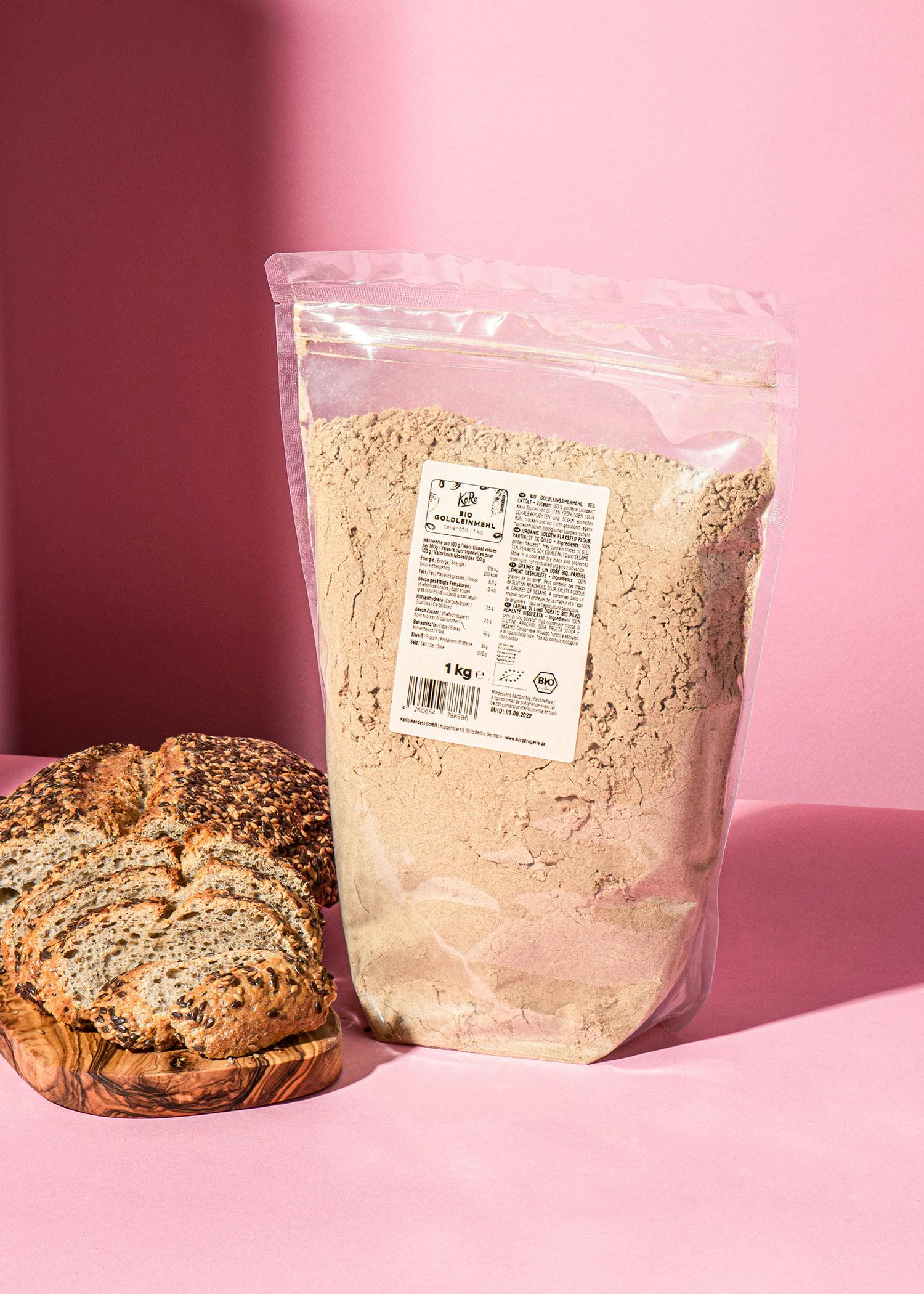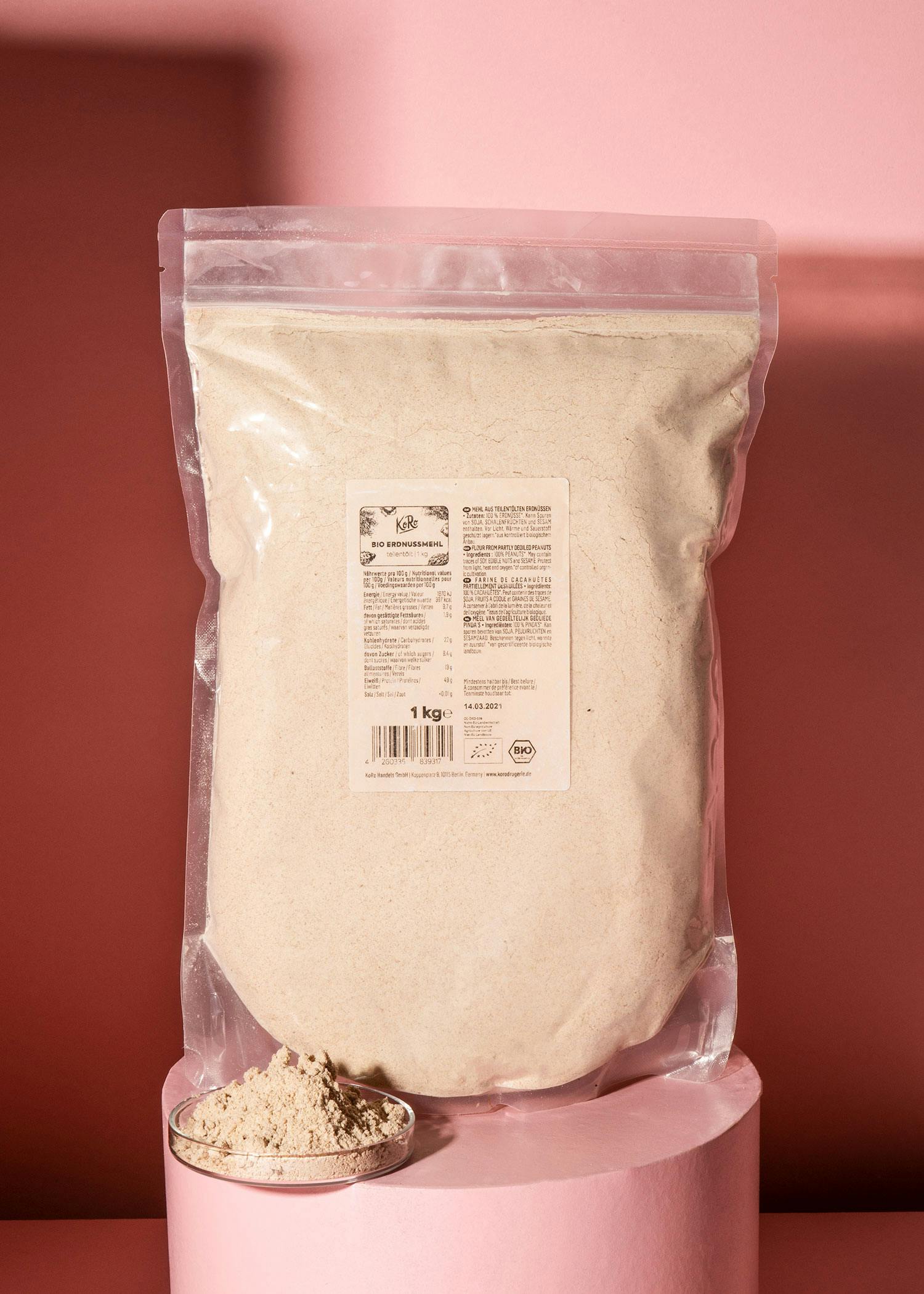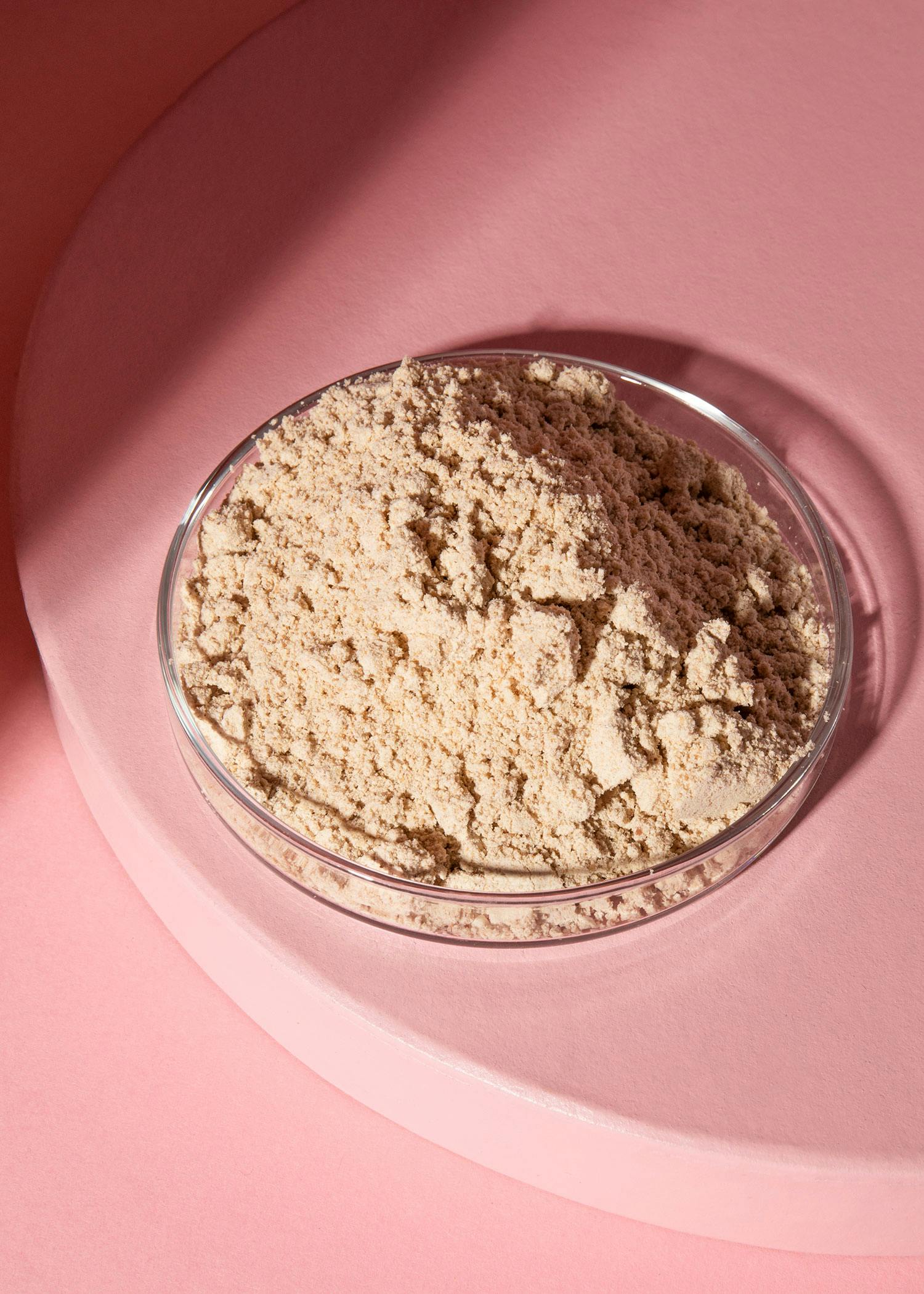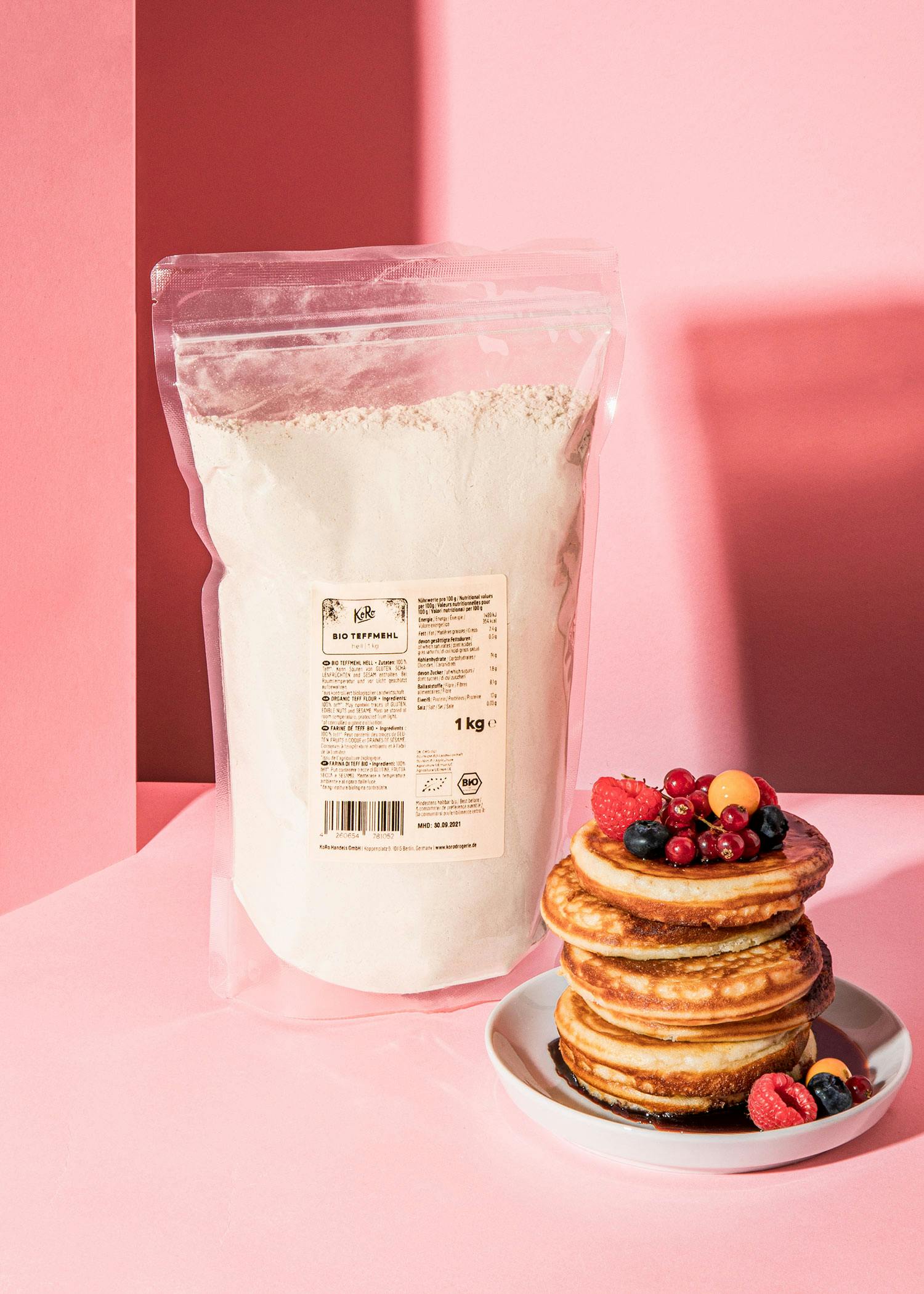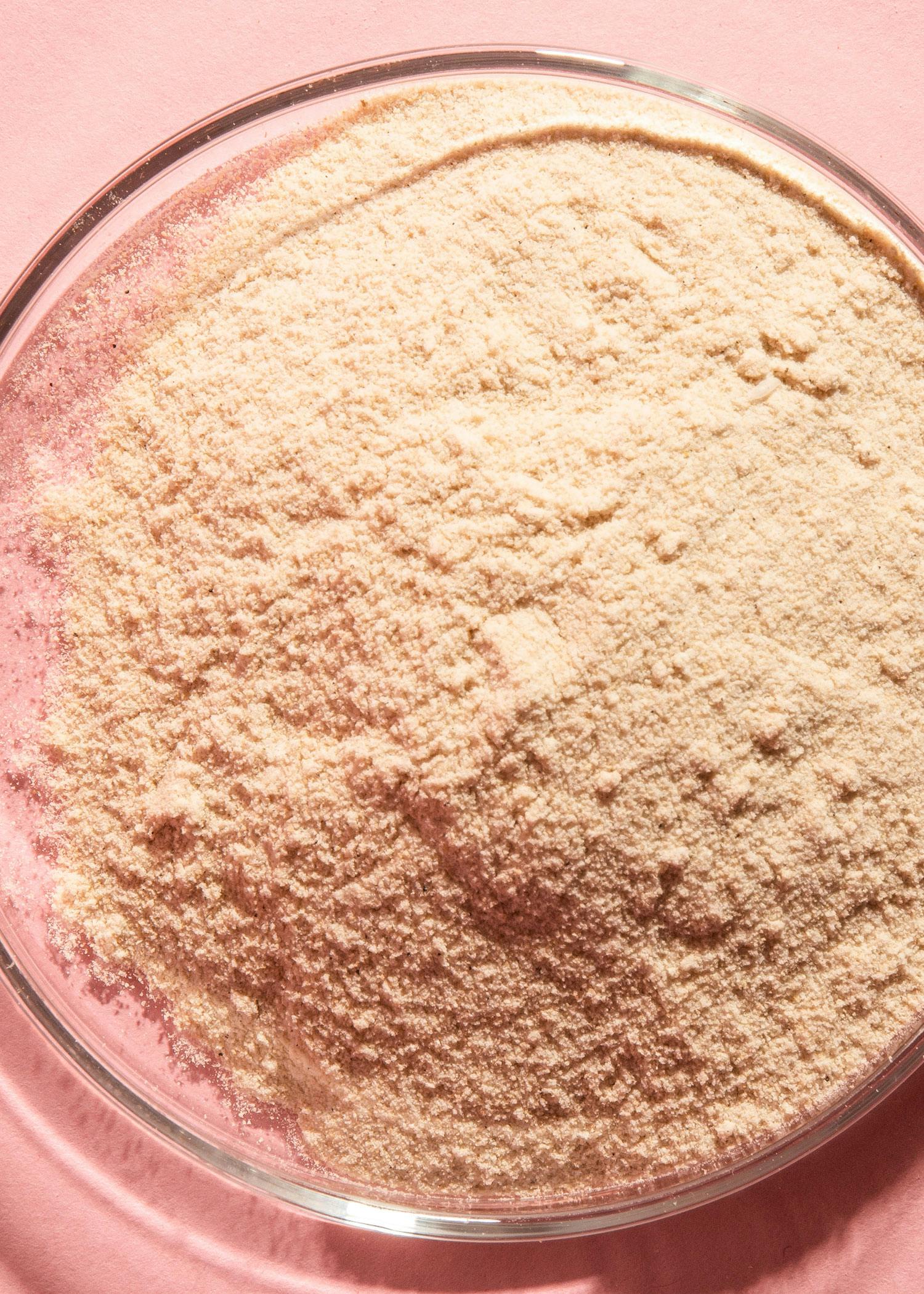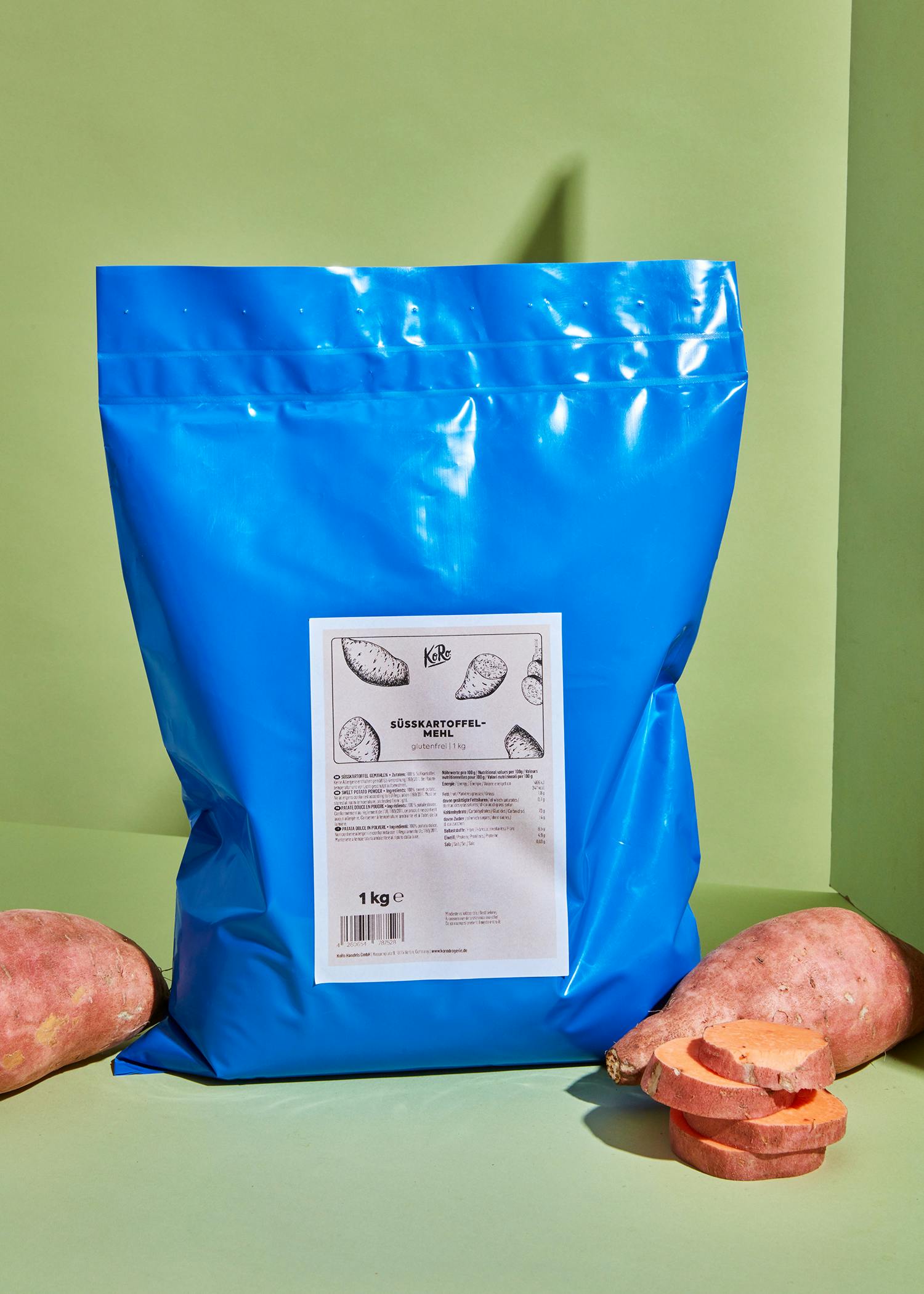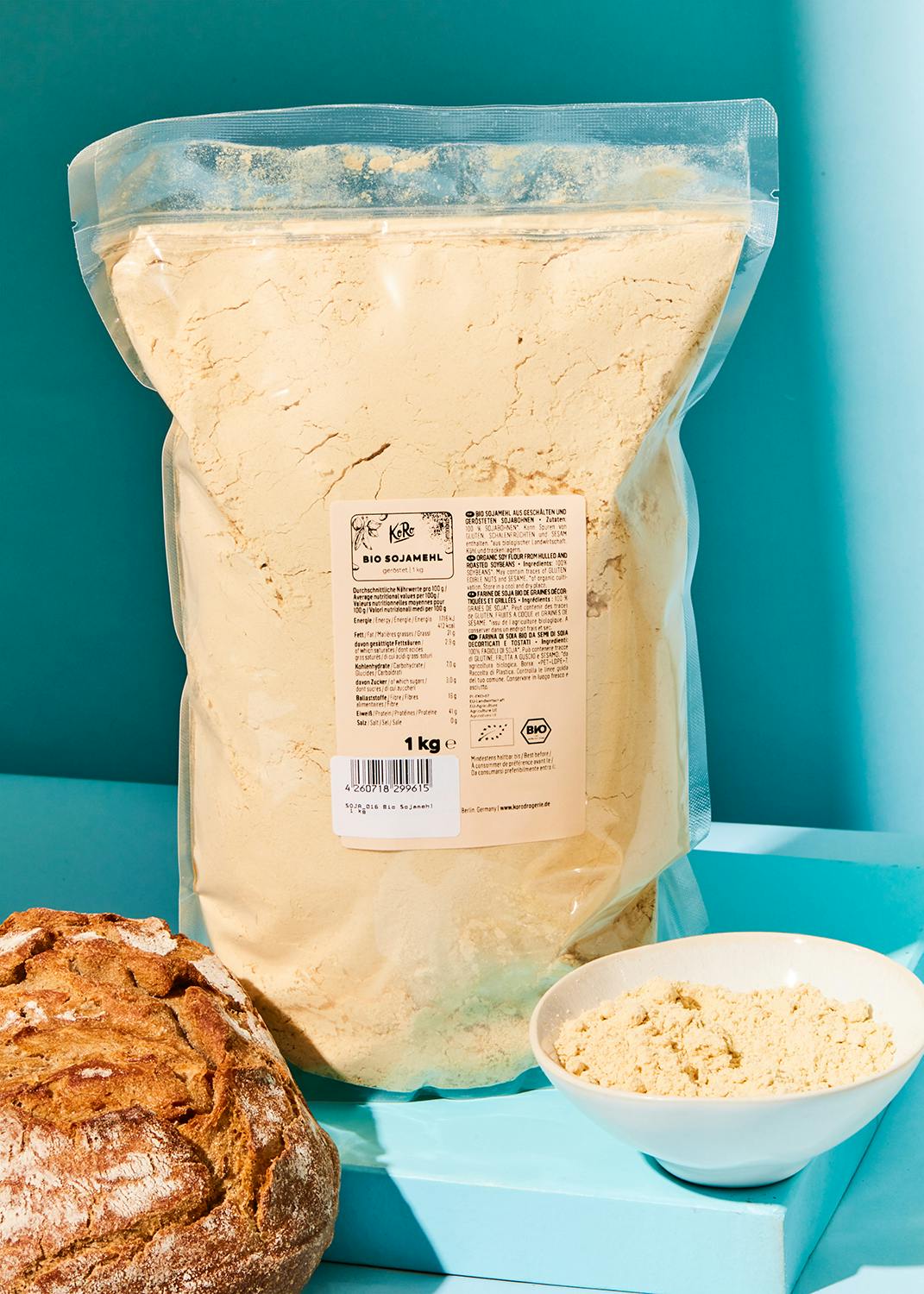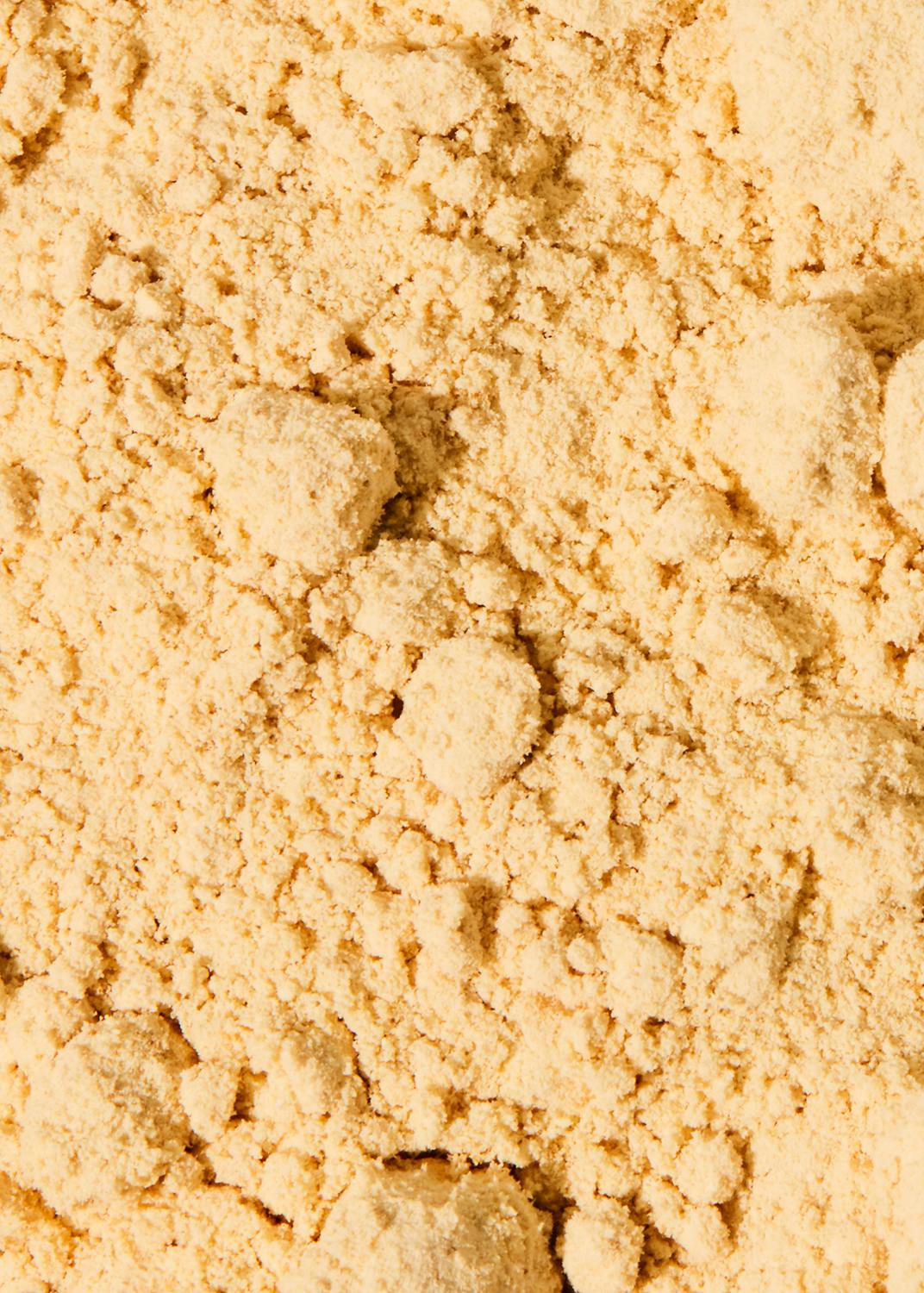Flour 13 Article
Buy flour
We often dream of Christmas when thinking about cakes and flours. But all the flours you can find in our flour category can be used all throughout the year, not just in the festive season. Many people have been stocking up on flour during this Corona pandemic — mostly wheat flour. Wheat flour is just the tip of the iceberg in terms of flours and we want to share the countless alternatives with everyone. That's why we offer countless options, including:
- - organic, partly de-oiled flaxseed flour
- - organic, partly de-oiled gold flaxseed flour
- - organic chickpea flour
- - sweet potato flour
- - organic coconut flour
- - guar gum
- - almond flour
- - organic, partly de-oiled peanut flour
- - organic teff flour
Best of all, you don't have to run to the shops to find out that the shelves are empty. You don't have to carry heavy bags of flour back home. Our flour is delivered directly to your front door. We stay true to our style and deliver your flour in convenient value packs, so that you can make as many brownies as you could possibly want!
Recipes with flour
Flour is a staple of nutrition, indispensable to most diets around the globe.
Baguette and bread
Who does not love the smell of freshly baked baguette? The low-carb version is great for those watching their calorie intake. Not to mention a juicy banana bread, which has only gained in popularity during these Corona times. By the way: banana bread tastes delicious when made with peanut flour! Top it with one of our nut butters and enjoy the flavour explosion that follows!
It’s pizza o’clock
Friday evening, 7 pm — you are dreaming of a tasty pizza, but not the frozen kind. If you follow the saying "in crust we trust", make your own pizza dough with our flaxseed, almond and coconut flours for optimal crispiness. For all those who like an Oriental note to their meals, use our chickpea flour to make your very own falafel balls. Serve with a yogurt sauce and leave no cravings unsatisfied.
Bake, bake my sweet cake
"Take time to do the things that truly make you happy" – we believe that this saying could not be closer to the truth, which is why we need to take you through some chocolate recipes now! These recipes will be especially helpful if you are want to avoid wheat flour. You could try our hazelnut and chocolate cake, our pumpkin chocolate cake, sweet potato brownies or chocolate brownies – nut and pseudo cereal flours give all your baked goods their nutty, spiced flavours. How about a keto almond cake? Or would you prefer a lime and coconut cake? We simply can't decide between vegan blonde brownies and vegan sponge cake. But thankfully, the week has 7 days and our alternative flours come in 1 kg value packs, so you can relax and try baking anything you want!
No bake desserts
As you probably know, flour does not have to be baked. It's equally as delicious in "no bake" desserts. Our favourites are black forest cherry balls, and lemon cheesecake balls. But clean peanut butter bites or coconut berry dessert will also certainly impress your guests at the next dinner party. Speaking of delicious desserts, did you know that guar gum is a great binding agent for homemade ice-cream? Guar gum is perfectly suited as a binder, for hot as well as cold ingredients. With some fruit, you can use guar gum to make marmalade without having to heat or cook anything! If you want to try it, go for it: buy our unconventional guar gum.
All your questions about flour
We want to give you information about our different types of flour. In case you have questions about a specific product, have a look at the product page and specification. If you don't find what you are looking for, feel free to contact us by email or on social media and we will answer all your questions.
What makes our flours special?
Our different types of flour each have their individual advantages: our organic flaxseed flour contains 32 g of protein for 100 g, making it a real protein bomb. It also contain a lot of fibre (36 g/100 g) and is gluten-free. All this without losing any of the baking and coking qualities. Our organic chickpea flour is a real all-round talent: the chickpea's tasty, nutty sweetness remains in its powdered form and refines sweet as well as savoury dishes. As we said, flours make your kitchen richer — have a good look at our flour selection. You will find more tips on how to use each flour on their respective pages. Our organic flaxseed flour and organic golden flaxseed flour, for example, have a high swelling capacity, meaning you should use enough liquid when baking with them. guar gum, on the other hand, is the perfect binding agent. It thickens and binds any creations.
Why not use conventional flour?
Wheat is not bad in itself, but there are several reasons why more and more people are turning to wheat alternatives. Wheat flour contains barely any nutrients — just plenty of carbohydrates and gluten protein. Alternative flours, made from nuts or pseudo cereals can often provide these benefits: some flours are real sources of protein, others are gluten-free and some have a high fibre content. Flavour is also a big factor: nut-based flours, like our almond flour, give you tasty nutty notes for your experiments.
What should be considered when using alternative flours?
You know us by now — we don't like to lump everyone together. As we know, everyone is unique. You can look at each individual flour's description for hints on how to use them. Chickpea flour, for example, should not be consumed raw, since the chickpeas have not been heated, meaning they are toxic to humans. But don't worry — once heated, chickpea flour is no longer toxic and tastes delicious!
Binding agent for gluten-free flours
Many of our alternatives to wheat flour do not contain gluten (gluten protein), which is usually what keeps the dough together or elastic. Therefore, if you are using a gluten-free type of flour, it is recommended that you add a binding agent to your flour mixture. We recommend a ratio of ⅔ gluten-free flour and ⅓ starch. You can also ideally replace the latter with guar gum.
Keep in mind the ratio when substituting wheat flour
If you are following a wheat flour recipe, you should keep in mind the ratio. Not all flours can replace wheat flour 1:1. Many flour have a high fibre content, meaning they can absorb more water than conventional wheat flour. 100 grams of wheat flour should be replaced by about half (50 g) the amount of almond flour. With coconut flour, you should use about ¼ or ⅓ of the wheat flour amounts. You can also replace 100 g of wheat flour with about 75 g of chickpea flour or 90 g of flaxseed flour. But instead of complicating things, simply have a look at our Food Journal, where you can find countless recipes using coconut, almond or sweet potato flours.
Which flour is healthy?
Healthy is, above all, a balanced and wholesome diet. Our flours made from nuts, seeds and pseudo cereals can be a great alternative to conventional wheat flour. They can be especially useful for those with allergies (e.g. gluten).
Which flour has the most protein?
If you are looking for a flour that can also be your protein bomb, here's a list of the flours with the highest protein contents:
- - organic, partly de-oiled flaxseed flour (32 g/100 g)
- - organic, partly de-oiled gold flaxseed flour (35 g/100 g)
- - organic, partly de-oiled peanut flour (45 g/100 g)
- - organic coconut flour (20 g/100 g)
- - almond flour (38 g/100 g)
- - organic chickpea flour (22 g/100 g)
Are all the flour types vegan?
Of course! All of our flours are made from a single ingredients. No additives, no animal ingredients — 100 % plant-based.
Can I also make a roux with the flour alternatives to white flour?
Of course, providing you use one of the other flours that contain starch. If you use gluten-free flours, like our organic coconut flour , you should add a binding agent, such as guar gum to make a successful roux.
Can you also prepare flour dumplings with the flour alternatives to white flour?
Similar to roux, it is essential for flour dumplings to stick together. You can usually achieve this with a gluten-containing flour. If you want to use one of our gluten-free flours for this, it is advisable to work with an additional binding agent such as guar gum.
Do you have gluten-free flour?
Of course, that's why the different types of flour are so popular. Basically, most of our flours are naturally gluten-free. However, cross-contamination with gluten can often occur during the packaging process, as our packers often also process foods containing gluten. For this reason, we do not label all flours as gluten-free. However, you have absolutely no need to worry about our organic flaxseed flour, organic chickpea flour and organic coconut flour.
Which of the flours in the KoRo shop contain the fewest carbohydrates?
The winners in this category are:
- organic, partly de-oiled flaxseed flour (3,2 g/100 g)
- organic, partly de-oiled gold flaxseed flour (2,5 g/100 g)
- guar gum (1,0 g/100 g)
A low carb recipe: our low-carb baguette is delicious if you are looking for low-carb bread!
How should I store flour?
Flour should be stored in a cool, dark and dry place. Our ball mason jars are perfect recipients to store flour. They look great and provide airtight storage!
